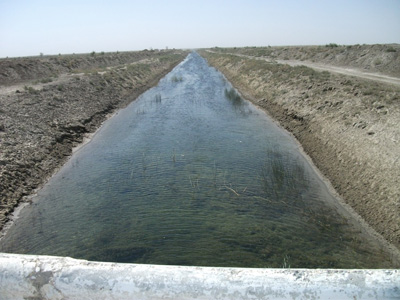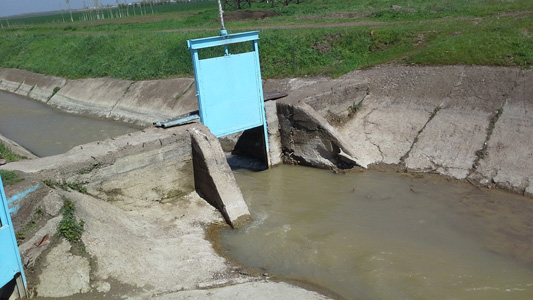

PROJECT TITLE: WB Project: P147203 - Case Study of Water Consumer Associations (WCAs), Uzbekistan. Strengthening irrigation water governance in Central Asia
CLIENT: World Bank
PERIOD: 2014
PROJECT AIM
The overarching objective of the study was to identify factors and innovative practices that positively affect performance of local irrigation water management institutions in Uzbekistan. A working hypothesis for the study is that incentives for better operation and maintenance of inter-farm and on-farm canals vary and depend on the crop grown.
The analysis used a case study approach covering different WCAs (multi-case study). Itl evaluated factors and practices that influence the performance of WCAs and ultimately, lead to efficient and effective water management.
It paid special attention to
(i) water use, allocation and distribution practices among farmers;
(ii) operation and maintenance of secondary and tertiary canals;
(iii) changes in water allocation and use as a response to a greater crop diversification and intensification of horticulture;
(iv) information flow issues;
(v) capacity of the WCA staff and farmers;
(vi) innovations that water consumers have introduced, either as individuals or collective groups;
(vii) coping mechanisms to respond to water shortages, financial and/or operational constraints; and
(viii) collaboration among different stakeholders.
DESCRIPTION OF ACTUAL SERVICES PROVIDED IN THE ASSIGNMENT
Activities will include:
(i) observations,
(ii) small group interviews,
(iii) individual interviews and
(iv) review of documents.
Observations include:
(i) the physical space and equipment available;
(ii) day-to-day operations and practices of the association;
(iii) the capacity of the Water Consumer Association (WCA) staff;
(iv) the organization and information exchange;
(v) the O&M of I**&D;
(vi) the dynamics of interaction between different stakeholders, the underline tensions and problems, and the overall mood of the WCA members and farmers about the operations;
(vii) farmers perceptions (as well as actions) regarding water management, allocation and planning;
(viii) visions of ways to improve the operations and alternatives to more efficient water managements;
(ix) coping mechanisms used by farmers and WCAs to address water shortage and water limits set by the AIS and innovations offer/used by different stakeholders; and
(ix) the overall responsiveness of the WCAs and other water management officials to the needs of WCA members, problem-solving and dispute resolution practices.
Small group interviews, Development of interview guide.
Explore not only the factual information about the WCAs, farms, agricultural practices and water management, but also
(i) broader issues related to water management and operation,
(ii) existing and potential incentives/disincentives and
(iii) reasons farmers cooperate with one another regarding water distribution and management, and participate in the WCAs.
Individual interviews
conducted interviews with the WCA administration / executive board, including the director and accountant, AIS director, member of mahala and hokimyat, and other formal and informal stakeholders identified during the pilot and preliminary analysis.
Review of documents.
Analysis of the WCA paperwork (the charter, minutes of General Assembly meetings and Executive board meetings, water allocation schedule and water measurements, agreements for service provision with the AIS and the WCA members, etc.).